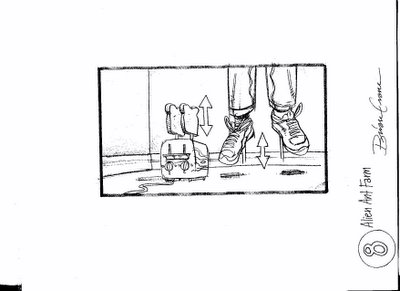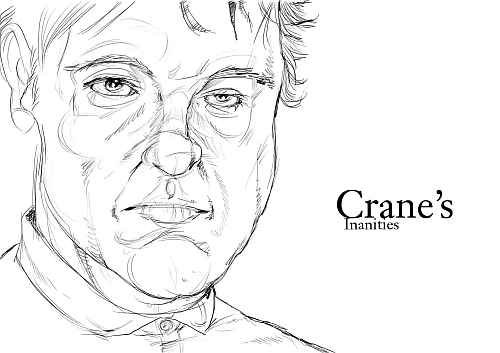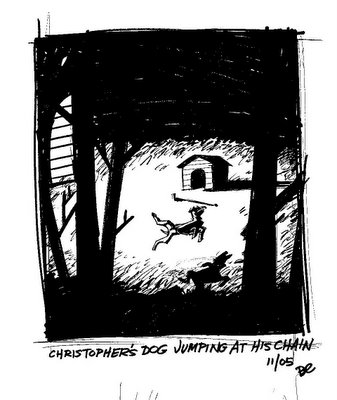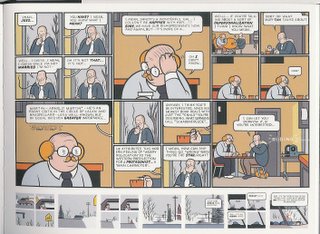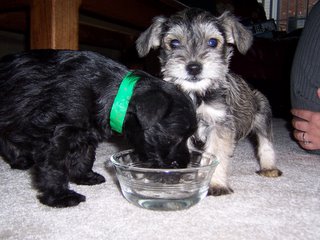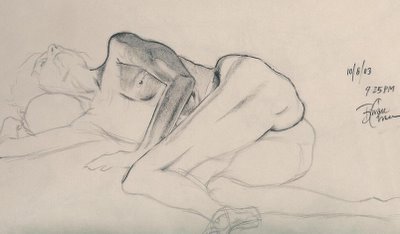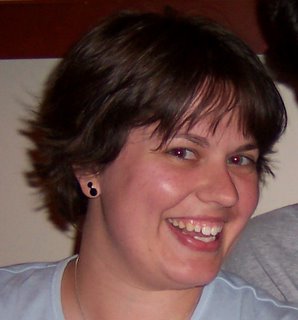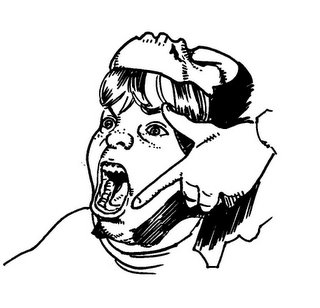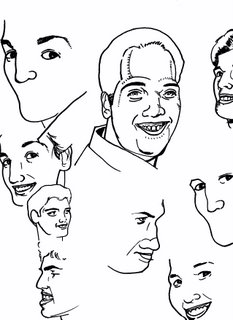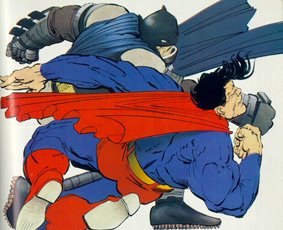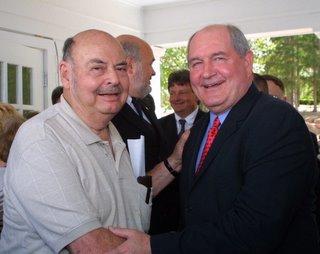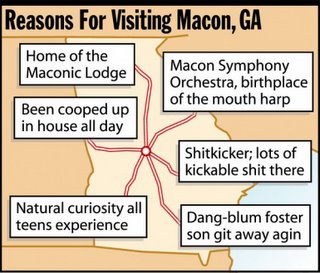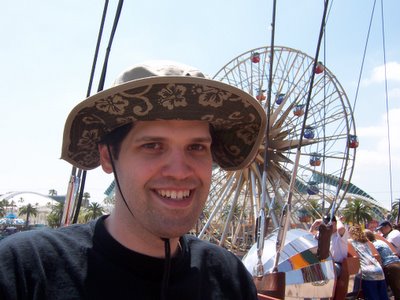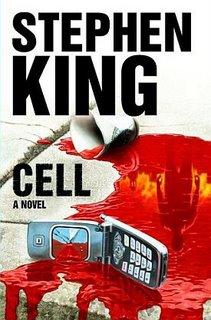
And now, a review of Stephen King's new novel,
Cell:
Cell is Stephen King on horror novel auto-pilot.
Cell is self-parody. This is
not King's triumphant return to full throttle horror, as some fan-boys have said. This is King writing a first draft, chucking it in a FedEx pouch the instant 'The End" appeared on his computer screen, and then putting it right the hell out of his head so he can start work cranking out his next book. As anyone who reads this blog knows, I worship the guy, but this is one book he should have kept in a drawer.
Cell is the story of a graphic novelist named Clay who's in Boston selling his first graphic novel. He's in line at an ice-cream truck (which happens all the time, right?) when the girl and the woman in front of him answer their cell phones at the same time. The "people" calling aren't actually people at all, but rather a zombie-making "pulse" of unknown origin simultaneously sent out to all cell phones and turning anyone who answers into a frickin' lunatic. The first 50 pages of
Cell are not only readable, they're actually pretty good. This would have made a great short story or novella. Has the feel of King's apocalyptic classics like "The Mist" and
The Stand. These opening scenes that take place in a world where nothing is known, nothing is certain, and anything could kill you, is shot through with what feels like the genuine panic of impending apocalypse. For 50 pages,
Cell manages to be frenetic and even scary.
But with the other 300 pages, however, King's laid out for himself the thankless task of
explaining what happens to graphic-novelist Clay and his ever-changing band of New England-area survivors. It didn't take 300 pages for me to figure out that I didn't really care what happened to them. Anyway, those who didn't have cell phones and weren't affected by 'the pulse', are having to survive against a ravening (and much larger) contingent of zombies (or "phoners") who, at least at first, will tear any living they see limb from limb. Each successive plot twist becomes more unbelievable than the last. In order to anchor the rising level of gory goofiness in something that at least has the
feel of reality, King has his heroes meet up with a barely-teenage computer nerd named Jordan who essentially intuits what's going on behind the scenes with the rapidly evolving "flocks" of "phoners". There's really no way for this kid to know what's going on, no matter how good King says he is with computers, and yet he
does know it, and proceeds to recite paragraph upon paragraph of clunky exposition. Every baffling, completely unsupported-by-the-evidence thing he says, turns out, of course, to be true. It's a slog to get through.
Cell's a little like eating at Waffle House. It goes down fast and easy, but after you're done, you feel oogy, kinda guilty, and worse for the experience. And then, to make sure everyone leaves with a bad taste in their mouth, King goes down the well-trod slacker route he travelled in
Desperation,
The Shining, and
The Stand, and has his heroes emerge victorious by setting off a well-placed, well-timed, giant explosion. King is no stranger to deus ex machina, but he kills us with it here. It's an appropriately lazy climax for this lazy, lazy book. I'm under no illusions any of you Inanity-readers were for one second considering picking this thing up and reading it, but on the off-chance you
were, stop it.
King can be a very good writer. Anyone who's read
Rita Hayworth and Shawshank Redemption knows this. Same goes for
Misery,
Pet Sematary,
The Shining, or even
The Tommyknockers.
Cell represents a shift for King. No, not from good writing to bad, but from horror to a more "literary" kind of fiction in the vein of his New Yorker fiction. His last non-Dark Tower "horror" novel was called
From a Buick Eight -- his second "possessed car" novel. It was not a horror novel, but rather a somber mystery story with an ending that featured both sci-fi and "weird" fiction elements. The book wasn't bad (nor was it particularly good), but it wasn't horror either. I think what
Cell represents, (for all of you still reading this post), is the official end of King's involvement with horror novels. He's moved on. After finishing the sub-par
Cell, it becomes very clear why: his heart's just not in it anymore. All right, that's it. More tomorrow.
[Note: His next book, due out this November, is called
Lisey's Story. It is not in any way a horror novel.]
 What is there to say about this one? Or any of these really? It's all about the animate and inanimate, coming together to share in the joy of amazing music. Music videos, dudes. Also, someone mentioned the Pixar lamp from yesterday's post. Well yeah, that's the Pixar lamp in the middle. It's one of the lamps I know how to draw because I used to have one.
What is there to say about this one? Or any of these really? It's all about the animate and inanimate, coming together to share in the joy of amazing music. Music videos, dudes. Also, someone mentioned the Pixar lamp from yesterday's post. Well yeah, that's the Pixar lamp in the middle. It's one of the lamps I know how to draw because I used to have one.